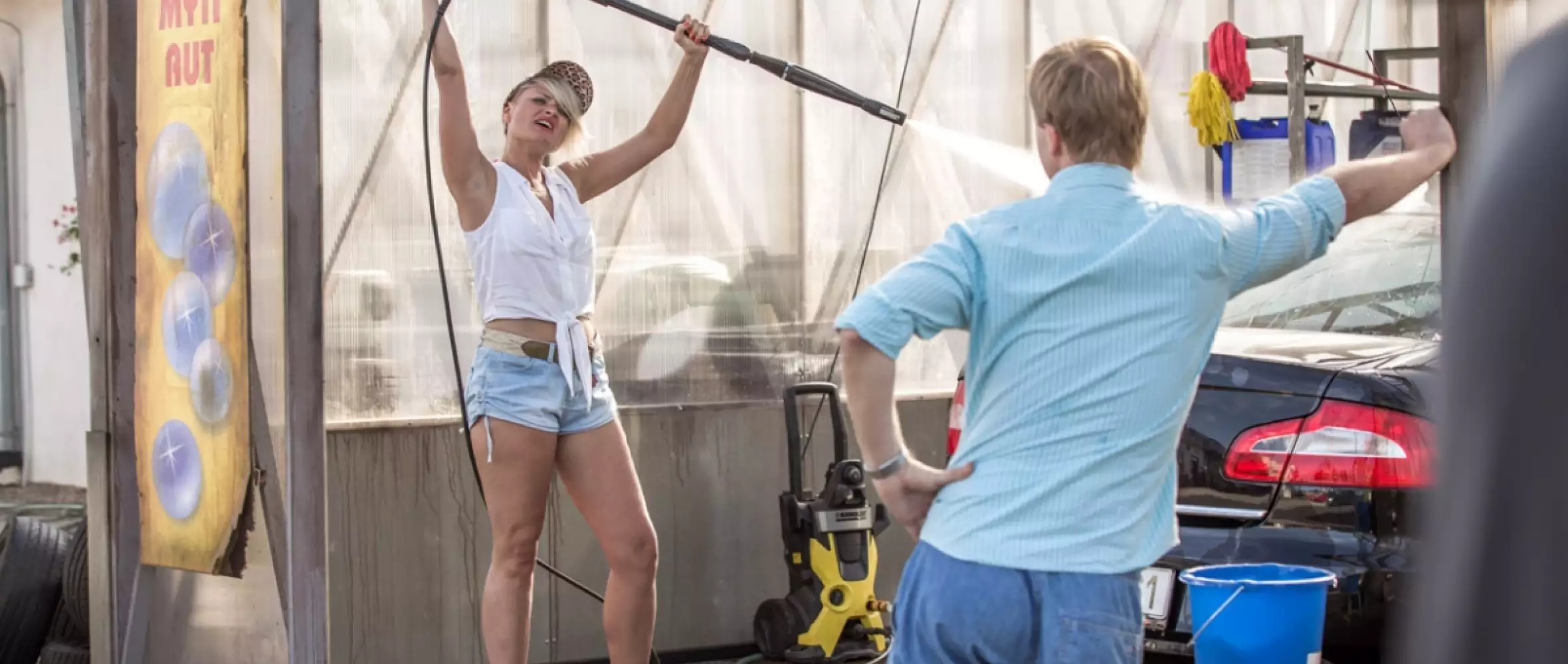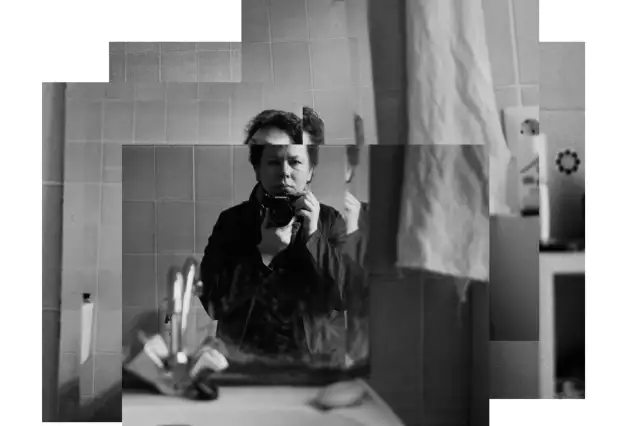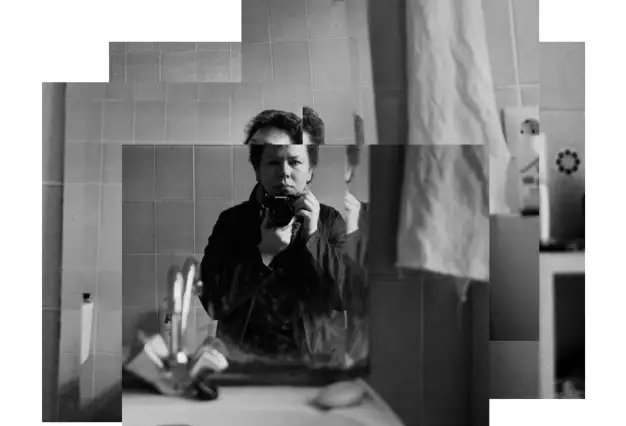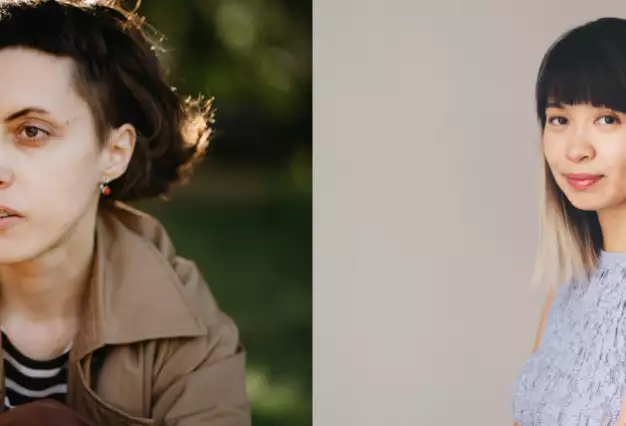
27 September 2020
Czech filmmakers take on small screen and episodic projects
Domestic filmmakers have found a further creative outlet in TV projects, while mobile and small screens have become a career launch-pad for the emerging generation
Czech filmmakers take on small screen and episodic projects
Domestic filmmakers have found a further creative outlet in TV projects, while mobile and small screens have become a career launch-pad for the emerging generation

The proliferation of quality TV shows and the streaming wars have created a previously unknown parity between the silver screen and small screens worldwide. Established filmmakers have been drawn to television and episodic projects enabling them to push boundaries, subvert expectations, and re-invent tired conventions. While the gap has diminished linearly, content has exploded exponentially. Big screen, small screen, mobile screens – talent started to rapidly switch from medium to medium.
Article by Martin Kudláč for CZECH FILM magazine / Fall 2020
The Czech Republic has not been exempt from this trend and such switching between mediums has become increasingly frequent. Czech film directors have done double duty in feature and series projects, some filmmakers launching dynamic and successful careers in television, while others honed their skills on small shows before making their feature-length directorial debut. The older generation found a welcome outlet for their creativity, while the younger generation began to forge promising careers in web series.
The Czech television landscape is largely similar to what can be seen globally. Genre production tends to be the most prominent, with the tried and tested twin genres of comedy and crime at the forefront. In addition, domestic film directors have also managed to reinvigorate the production of domestic series.
We will first take a look at comedy and similar genres, while the next section will focus on crime.
King(s) of TV comedy
The leading filmmaker in TV comedy is the producer-director Jan Prušinovský, director of the award-winning social dramedy The Snake Brothers (2015). For Prušinovský switching between the small and big screen has become second nature. Boasting a string of television hits, he has built a critically acclaimed career in serial storytelling.
His latest venture, Most! (2019), named for the north Bohemian town, brought him a huge following. The provocative and politically incorrect comedy that is a kind of Czech spin on the British television hit, the council-estate black comedy Shameless, was an instant success, becoming the most-watched series produced by Czech Television in the recent past and broke audience records both on TV and online. With a local pub being the epicentre of the series, in Most! the rag-tag troupe of characters from the social periphery and an alcoholic priest unwittingly battle deeply-rooted misguided preconceptions and stereotypes, such as xenophobia or transphobia.
Prušinovský is no stranger to TV gold, and his trademark style turns everyday, mundane situations into absurd ones, with slapstick and farce serving as a means of confronting and subverting social ills and stereotypes rooted in the collective consciousness. In fact, Prušinovský already had a recipe for designing popular shows with social messages that pack in laughs without moralizing. He directed one of the best-loved domestic series, sports comedy Sunday League (2010), which has over the years achieved cult status.
Prušinovský´s comedies make no secret of being influenced by British models: the most recent, The Fourth Star (2014), almost immediately brings to mind Fawlty Towers. This hotel-set comedy series follows a rag-tag team of hotel staff as they strive for coveted four-star status, even though some members of the team simply do not care about it. The prolific TV director and filmmaker has managed to ply his comic trade even in the smaller format of a web series by directing Autobazar Monte Carlo (2015), Match (2018), and Back to Square One (2019), a slice-of-life sitcom abounding in goofy turns.
Prušinovský´s versatility has recently taken him to the theatre stage, where he has directed a comedy, and he managed to wrap the shooting on his most recent feature film project while also producing Mistakes (2021) at the same time. A chamber piece, Mistakes will be the director´s first foray into romance and his first feature with a female lead.
The boy-meets-girl story is complicated by the revelation that the girl had a stint in porn, a hard pill for the boy to swallow. The director has said that Mistakes should be seen as a romance “where people are neither good nor bad, they are just people who, at certain points in their lives, make mistakes and are punished for them.”
Meanwhile, Prušinovský along with his long-term producer Ondřej Zima, from their production company OFFSIDE MEN, are well into the development of another big-screen work entitled Grand Prix. The film, to which the director refers as a “Euro road-movie”, follows a trio of friends from the margins of society as they drive across several countries to watch formula racing in Barcelona with only two tickets in their pockets.
However, Prušinovský is not the only one who can take credit for these TV hits. They are the result of a team effort with prolific domestic screenwriter Petr Kolečko. The regular writer for Prušinovský’s television series, Kolečko is just as busy working outside their acclaimed tandem.
His other work includes scripts for two popular domestic sports web series: Vyšehrad (2016) about a cocky football player, and another, Lajna (2017-2019), that follows the adventures of a temperamental hockey coach, where he shared directorial responsibilities. Kolečko is currently one of a group of the most hardworking Czech (script)writers juggling theatre, cinema, and television, and has already directed his first feature-length debut, a romantic sports comedy called Over Fingers (2019).
In addition to the combined talent of writer and director on The Fourth Star series, there was another singular talent in the equation, Miroslav Krobot. Krobot is a venerated domestic actor and a multi-hyphenate dividing his time between cinema, television and theatre. Besides starring as a melancholic cook in Prušinovský´s hotel sitcom, he served as the series' co-writer. He has had a varied career appearing in domestic films such as the animated drama Alois Nebel (2011), and has also worked with acclaimed European auteurs of the calibre of Béla Tarr and Agnieszka Holland. Lately, Krobot has temporarily switched from directing theatre plays to directing films, with two features to his credit: a rural black comedy Nowhere In Moravia (2015) and a dramedy, Quartette (2017).
Interestingly, the cast of The Fourth Star hails largely from Krobot´s home patch, the Dejvice Theatre, one of Prague’s most popular venues, where he served as artistic director. And he did not hesitate to repeat the role both on and off camera in The Doom of Dejvice Theatre (2019), a television comedy series he co-wrote and directed set in the actual theatre venue and revolving around the fictional attempt to rescue the theatre itself. The entire troupe of much-loved domestic actors plays exaggerated versions of themselves in a meta-comedy that sees them giving the “theatre of the absurd” a run for its money.
Another singular and distinctive of Czech auteur, Petr Zelenka – known most recently as the writer-director of Lost in Munich (2015), a political comedy and drama that takes an unexpected meta-turn that is completely in line with Zelenka´s elaborate hoaxes, and of the dramedy Droneman (2020) – has also dabbled in television. Besides co-directing and co-writing several episodes of HBO´s Czech localisation of the drama series In Treatment, Zelenka turned a play he wrote for the Dejvice Theatre into a hilarious series called Dubbing Street (2018).
A band of hapless characters, courtesy of the cast of the Dejvice Theater, attempts to save a ramshackle dubbing studio they have inherited, which leads to a series of absurd situations. Preserving his trademark style, Zelenka did not shy away from spicing up the series with meta-humour. Dubbing Street features a puppet show-within-a-show, Captain Crab, presenting the misadventures of a rock band of pubic lice.
Dubbing Street eventually earned three nominations for the Golden Nymph Awards at the 59th Monte Carlo Television Festival. And it appears the acclaimed auteur will soon return to episodic storytelling as he is preparing a series featuring his trademark irony about “a man who becomes the hero of an ecological movement against his will.”
Non-fiction series and other genres
It's not just in the realms of crime and comedy that the Czech TV landscape is full of interest. A number of engaging series have been created by filmmakers on their domestic turf. Among the most prominent is the docu-series Czech Journal (2013-), produced by Hypermarket Film. Directed and produced by the veteran “provocumentarists” Vít Klusák and Filip Remunda, the series addresses thorny domestic socio-political issues through the lens of auteur documentary. The two director-producers and the series showrunners have also tapped emerging local talent as directors. The upcoming season will feature an entry by Barbora Chalupová, the co-director on the Czech documentary box-office hit Caught in the Net (2020), about online predators.
Adam Sedlák, a leading representative of the new generation, came to the fore with the critically acclaimed millennial desktop miniseries Semestr (2016) before completing a low-fi civilization horror called Domestique (2018) that did the rounds of the international genre circuit. Director-writer-editor Andy Fehu, who has an even greater penchant for horror and a strong background in amateur filmmaking, unveiled his first feature-length directorial debut, The Greedy Tiffany (2015), a DIY morality horror, before joining Jan Prušinovský on the comedy series on the web, Autobazar Monte Carlo (2016).
The young director graduated to solo writing and directing on a web series titled Growroom (2017), which mixes thriller with horror in a story of the illicit drug trade. Fehu then went on to direct the web series Štafl (2018), lampooning the local taxi business, and is currently working on his sophomore feature The Bloody Bride (2021), a horror film, naturally, in which the leading characters are influencers trapped in a rat race for audiences, with dire consequences.
The Czech production company Bionaut, which also focuses on genre production, made the trendy online thriller series #martyisdead (2019) for the age of social media, directed by another young talent, Pavel Soukup, whose student film Leshy (2015) became the basis for Bionaut´s current production, the horror anthology Different, inspired by Slavic myths, which is a co-production by the Czech Republic, Slovakia, and Poland.
The established producer-writer-director David Ondříček, the director and co-writer of the award-winning period drama In the Shadow (2012), brings a more cinematic approach to television storytelling. He has continued in this vein with a dramatic retelling of local events in Dukla 61 (2018), a TV miniseries about the biggest Czech mining disaster of the twentieth century, which makes good use of the kind of space that the small screen offers for such a narrative. Another of Ondřiček´s projects based on true events is ready for the big screen: he has just completed his next feature, an eagerly awaited biopic drama about the “Czech locomotive” Emil Zátopek, the long-distance runner who won three medals for Czechoslovakia at the 1952 Summer Olympics, entitled simply Zatopek (2021).




